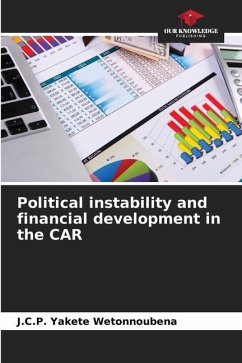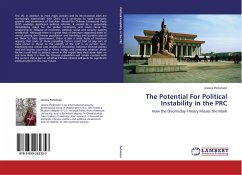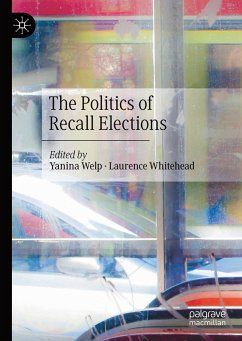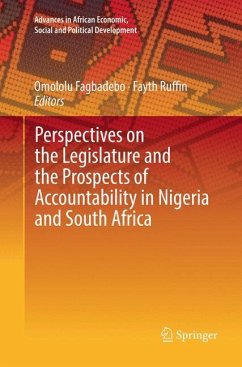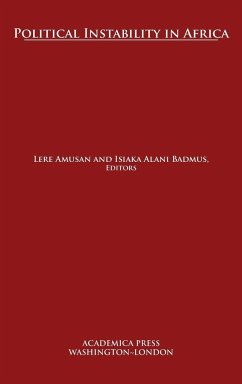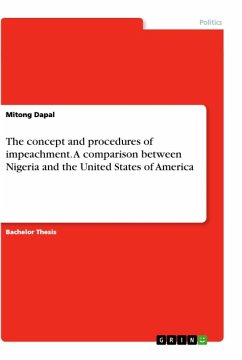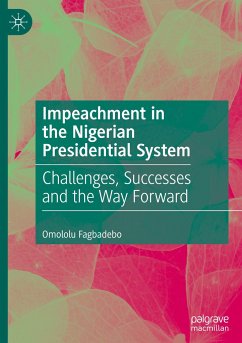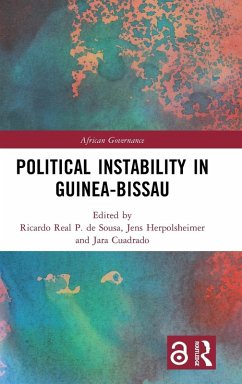
Presidential Impeachment and the New Political Instability in Latin America

PAYBACK Punkte
58 °P sammeln!
Documents the emergence of a new pattern of political instability in Latin America.Documents the emergence of a new pattern of political instability in Latin America. Traditional military coups have receded in the region, but elected presidents are still ousted from power as a result of recurrent crises. AnÃbal Pérez-Liñán shows that presidential impeachment has become the main constitutional instrument employed by civilian elites to depose unpopular rulers. Based on detailed comparative research in five countries and extensive historical information, the book explains why crises wit...
Documents the emergence of a new pattern of political instability in Latin America.
Documents the emergence of a new pattern of political instability in Latin America. Traditional military coups have receded in the region, but elected presidents are still ousted from power as a result of recurrent crises. AnÃbal Pérez-Liñán shows that presidential impeachment has become the main constitutional instrument employed by civilian elites to depose unpopular rulers. Based on detailed comparative research in five countries and extensive historical information, the book explains why crises without breakdown have become the dominant form of instability in recent years and why some presidents are removed from office while others survive in power. The analysis emphasizes the erosion of presidential approval resulting from corruption and unpopular policies, the formation of hostile coalitions in Congress, and the role of investigative journalism. This book challenges classic assumptions in studies of presidentialism and provides important insights for the fields of political communication, democratization, political behaviour, and institutional analysis.
Table of contents:
1. Institutional crises in presidential regimes; 2. Five cases of impeachment and a presumed madman; 3. Presidential crises and the decline of military intervention; 4. Latin America in the age of scandal; 5. Scandals and the political economy of popular outrage; 6. Building a legislative shield: the institutional determinants of impeachment; 7. Towards a new pattern of political instability; 8. Rethinking Latin American presidentialism.
Documents the emergence of a new pattern of political instability in Latin America. Traditional military coups have receded in the region, but elected presidents are still ousted from power as a result of recurrent crises. AnÃbal Pérez-Liñán shows that presidential impeachment has become the main constitutional instrument employed by civilian elites to depose unpopular rulers. Based on detailed comparative research in five countries and extensive historical information, the book explains why crises without breakdown have become the dominant form of instability in recent years and why some presidents are removed from office while others survive in power. The analysis emphasizes the erosion of presidential approval resulting from corruption and unpopular policies, the formation of hostile coalitions in Congress, and the role of investigative journalism. This book challenges classic assumptions in studies of presidentialism and provides important insights for the fields of political communication, democratization, political behaviour, and institutional analysis.
Table of contents:
1. Institutional crises in presidential regimes; 2. Five cases of impeachment and a presumed madman; 3. Presidential crises and the decline of military intervention; 4. Latin America in the age of scandal; 5. Scandals and the political economy of popular outrage; 6. Building a legislative shield: the institutional determinants of impeachment; 7. Towards a new pattern of political instability; 8. Rethinking Latin American presidentialism.





